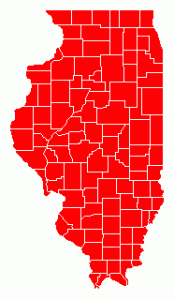Two Circuits Approve Use of Uncounseled Convictions Against Native Americans
In Burgett v. Texas, 389 U.S. 109 (1967), the Supreme Court held that a prior conviction cannot be used to enhance a defendant’s sentence under a recidivism statute if the prior conviction was obtained in violation of the defendant’s constitutional right to counsel. Native Americans, however, must deal with an apparent loophole in the Burgett rule: the Sixth Amendment right to counsel applies to proceedings in federal and state courts, but not tribal courts. If an uncounseled prior conviction in tribal court does not violate the Constitution, it may arguably fall outside the Burgett prohibition and be used against the defendant in a later case.
By some apparent coincidence, the Eighth and Tenth Circuits last month both addressed the use of uncounseled tribal-court convictions under 18 U.S.C. § 117(a), which makes domestic assault by a habitual offender a federal crime. Both courts approved use of such convictions to satisfy the criminal-history element of the offense.
The Eighth Circuit decision, which actually drew a dissent, seems the more carefully reasoned.


